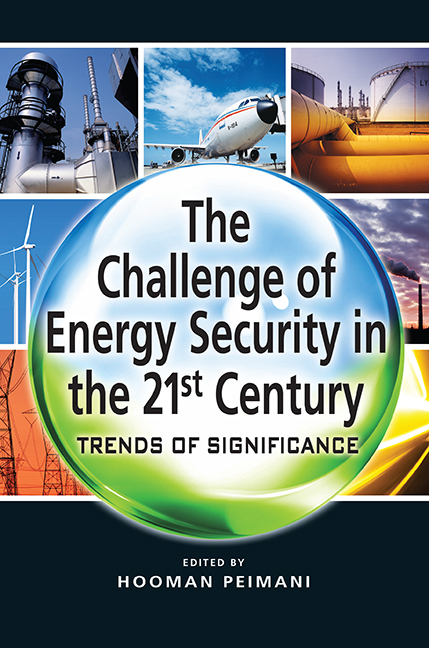Book contents
- Frontmatter
- Dedication
- Contents
- List of Tables and Figures
- List of Maps
- List of Acronyms
- Acknowledgements
- About the Contributors
- INTRODUCTION
- Global Trends in Renewable Electricity, Renewable Fuels, and Markets for Renewable Heating and Cooling
- Resource Mutualism or Codependence? The Water-Energy Nexus in Asia
- OPEC's Long-Term Role in Affecting Energy Security
- Whither a Gas OPEC? Not in the Pipeline
- Shared Interests or Competing Actions: What Drives Energy Security Cooperation between Asia and Europe?
- CONCLUSION
- Index
Shared Interests or Competing Actions: What Drives Energy Security Cooperation between Asia and Europe?
Published online by Cambridge University Press: 21 October 2015
- Frontmatter
- Dedication
- Contents
- List of Tables and Figures
- List of Maps
- List of Acronyms
- Acknowledgements
- About the Contributors
- INTRODUCTION
- Global Trends in Renewable Electricity, Renewable Fuels, and Markets for Renewable Heating and Cooling
- Resource Mutualism or Codependence? The Water-Energy Nexus in Asia
- OPEC's Long-Term Role in Affecting Energy Security
- Whither a Gas OPEC? Not in the Pipeline
- Shared Interests or Competing Actions: What Drives Energy Security Cooperation between Asia and Europe?
- CONCLUSION
- Index
Summary
1. INTRODUCTION
Dwindling resources for fossil fuels, rising prices for oil and gas, the threat of climate change, the urgent need to reduce emissions, and the quest for economic growth are some of the factors affecting energy policies in countries in Asia and Europe and leading to certain trends in the area of energy cooperation. The issue of energy has long been on the political agenda of the European Union (EU)-Asia cooperation in various frameworks and has grown in importance over the years due to certain factors, including rising oil prices, climate change, and sustainable development. Today a number of official channels for cooperation in the energy sector exist between Asia and Europe: cooperation under the ASEAN framework, bilateral dialogue and cooperation with key countries (China, India, and Japan), and biregional dialogue under the Asia Europe Meeting (ASEM) framework, plus a number of other instruments to promote cooperation. Even though Asia is not the top priority for Europe when it comes to energy cooperation and vice versa, there are valid reasons as to why cooperation in this sector is beneficial for both regions (e.g. technology transfer, new markets, and combating climate change). This chapter gives a descriptive overview of the existing mechanisms for cooperation, looks at what issues are priorities in both continents, and discusses the perceived trend of moving from competition to cooperation in energy policies between them. Such cooperation is significant for it is one of the major trends affecting energy markets.
2. ASIA-EUROPE COOPERATION IN CONTEXT
The European Union's external policies are based on the firm belief that multilateralism is the only way to solve future challenges and that it needs to speak with one voice in order to level its strength. This attitude is also increasingly reflected in the European Union's external energy policy as will become obvious in the following paragraphs.
- Type
- Chapter
- Information
- The Challenge of Energy Security in the 21st CenturyTrends of Significance, pp. 132 - 160Publisher: ISEAS–Yusof Ishak InstitutePrint publication year: 2011



